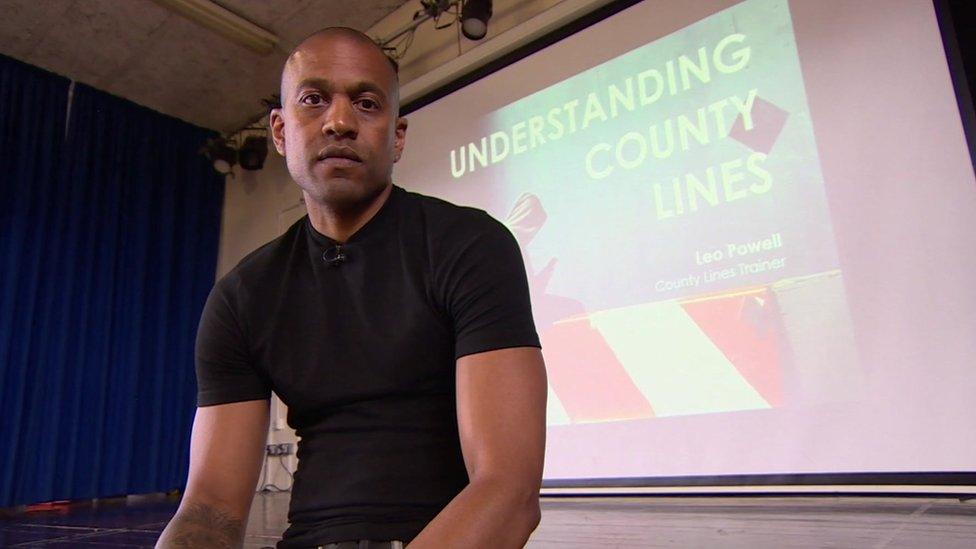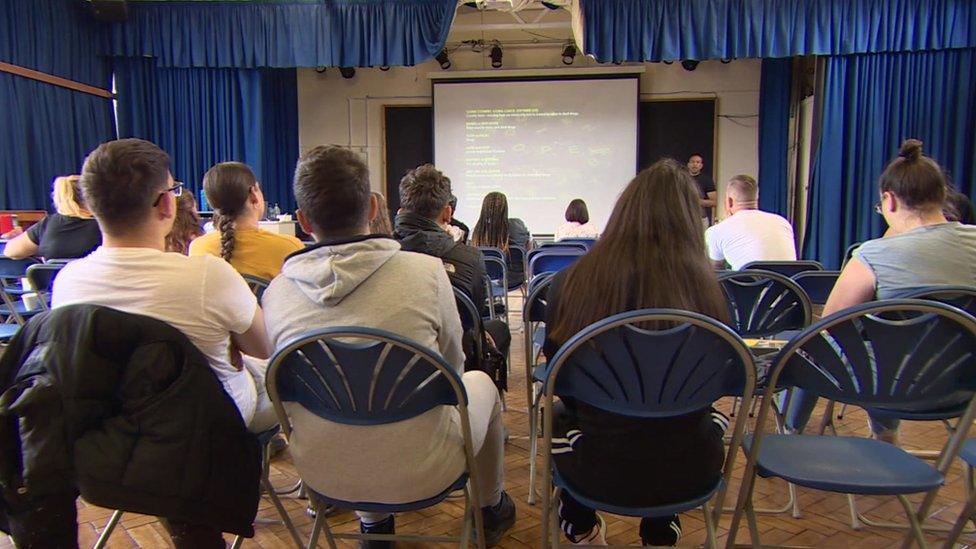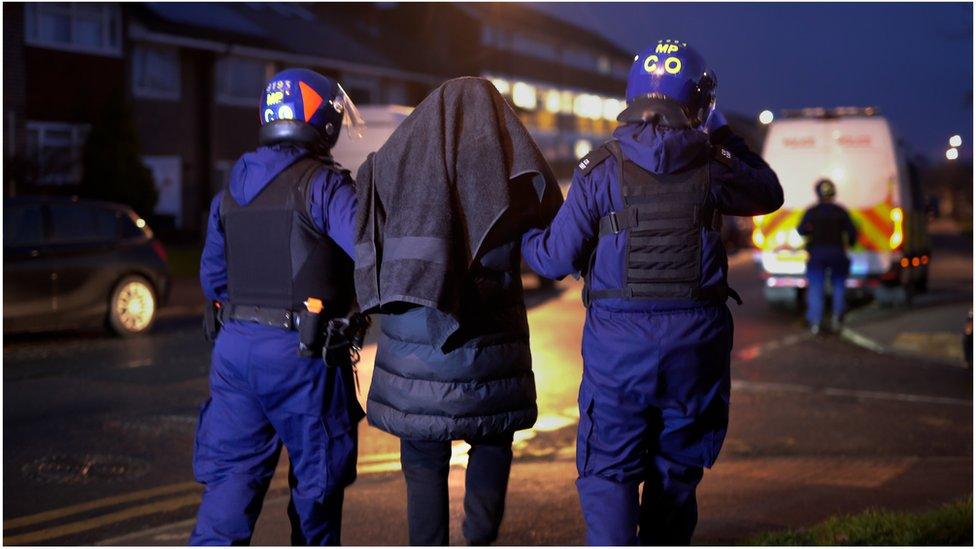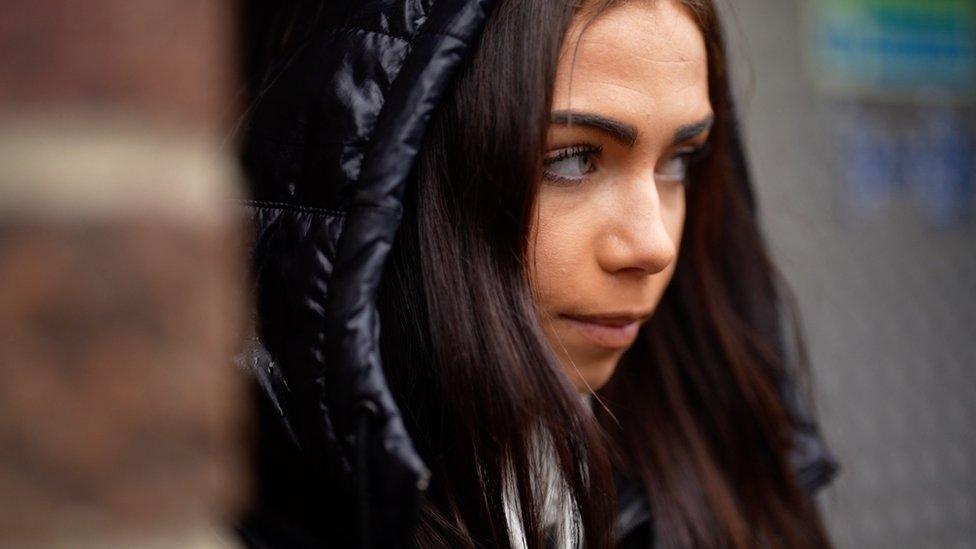Cuckooing crimes on rise across London
- Published

Leo Powell has gained recognition for his youth work, educating young people about county lines
Cuckooing, a crime that involves taking over a victim's house for criminal activity, is steadily on the rise in London, council data shows.
There were 316 recorded instances of cuckooing in the capital in 2022, up from 79 in 2018, figures requested by London Labour show.
Common forms of cuckooing include using the property to deal drugs, store weapons, or carry out sex work.
The Met Police says it is working to stop cuckooing.
It is often associated with county lines drug dealing in the peripheral boroughs of London, but recent data shows a growing number of incidents more centrally.
Leo Powell, head of Year 10 at St Ignatius School in Enfield, educates youngsters across the country about the dangers of becoming involved with drugs and gangs.
He believes as long as drug demand is high, cuckooing will continue in the community.

Leo Powell runs training programme across the country
He said: "Cuckooing is just part of the drug-selling process. They need a house where they can store and distribute the drugs.
"The demand for drugs is high, so unless we deal with the drug issue at hand, with those who are addicts, there's also going to be a demand.
"And where there's demand there's always going to be a supply."
The council figures were requested and released by London Labour, which said incidents were not being recorded correctly with possibly more incidents going unknown.
Only 13 of London's 33 councils had complete datasets of cuckooing incidents. Their numbers were double those of the Met Police, which recorded 160 cases for 2022.
On how to keep the numbers down, Mr Powell added: "If we get to the kids early enough from primary school age, we can educate them about county lines. We need more educators to do this.
"Right now I don't see any solution to the problem."
The Met Police said it strived to offer guidance for officers on the law around cuckooing.
It said it also offered guidance on closure orders for antisocial premises, as well as identifying vulnerable people or venues and how Safer Neighbourhood Team officers can help with regular visits.
A spokesperson added: "The reporting of cuckooing has also been streamlined by the addition of a flag to pre-assessment checks, which are created when police deal with vulnerable people, and a cuckooing flag can also be added on the Crime Report Information System".

Follow BBC London on Facebook, external, Twitter , externaland Instagram, external. Send your story ideas to hellobbclondon@bbc.co.uk, external
- Published9 March 2023

- Published2 December 2022
